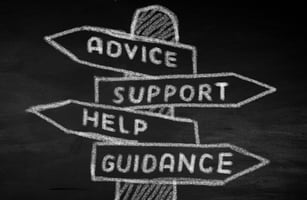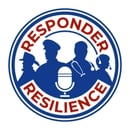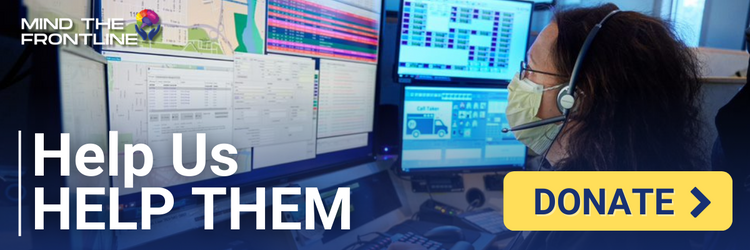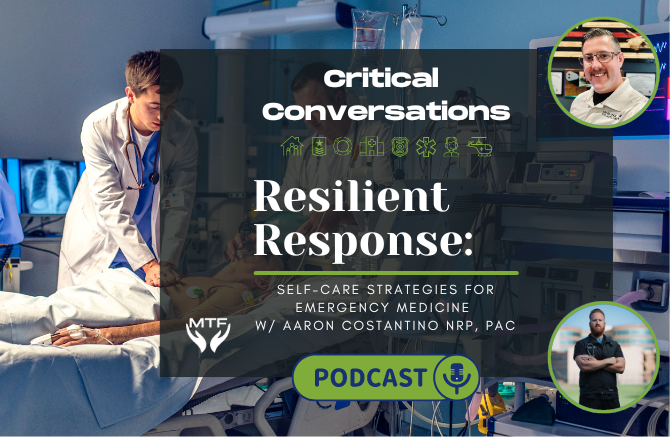Explore the effectiveness of EMDR therapy for first responders, active duty personnel, and veterans in managing stress and trauma.
Understanding EMDR Therapy and its Benefits for First Responders
EMDR therapy has revolutionized the way first responders manage stress and trauma by offering a unique approach to healing. By focusing on distressing memories or events while engaging in bilateral eye movements, sounds, or taps, EMDR helps desensitize individuals to these memories and reprocess them in a more adaptive way. The quick results of EMDR make it especially beneficial for first responders, who often have limited time for therapy due to the demands of their high-stakes and fast-paced work environment.
Through EMDR therapy, first responders can effectively process and resolve traumatic experiences, leading to improved mental health and overall well-being. This not only enhances job performance but also facilitates better emotional regulation and increased resilience in the face of challenging situations. By providing the necessary support to manage stress and process trauma, EMDR therapy equips first responders with the tools they need to thrive in their critical roles, ultimately benefiting both themselves and the communities they serve.
.png?width=307&height=200&name=Blog%20Section%20Pictures%20(1).png)
Addressing Delayed Help-Seeking Behavior Among First Responders
One common issue among first responders is delayed help-seeking behavior. Many first responders wait too long to seek help for their mental health concerns, often due to stigma, fear of judgment, or the belief that they should be able to handle everything on their own. However, delaying help can have serious consequences for their well-being and job performance.
Addressing this issue requires a multifaceted approach. Education and awareness campaigns are crucial in breaking down the stigma surrounding mental health in the first responder community. By providing information and resources that normalize seeking help, individuals may feel more empowered to prioritize their mental well-being.
In addition to education, it is essential to ensure that mental health resources are easily accessible and tailored to the unique needs of first responders. These resources should be confidential and specifically designed to address the challenges that individuals in this profession may face. By promoting these resources within the community, we can create a culture that values seeking support as a strength rather than a weakness.
By actively working to address delayed help-seeking behavior and fostering a supportive environment for mental health, we can help first responders prioritize their well-being and ultimately enhance their job performance. This shift in mindset not only benefits individuals but also contributes to the overall resilience and effectiveness of the communities they serve.

The Impact of Adverse Childhood Experiences on First-Responder Mental Health
Adverse Childhood Experiences (ACES) can have a profound and lasting impact on an individual's mental health, especially for those who choose to become first responders. These experiences, which may include instances of abuse, neglect, or household dysfunction during childhood, can significantly increase the risk of developing mental health conditions like post-traumatic stress disorder (PTSD), depression, and anxiety.
It is crucial to acknowledge and address the effects of ACES on the mental well-being of first responders. Many individuals in this profession may have firsthand experience with childhood trauma, which could shape their decision to pursue a career in public safety. This shared background can fuel their passion for helping others who have faced similar challenges or drive a strong sense of purpose in serving and safeguarding their communities.
By recognizing the impact of ACES on the mental health of first responders, we can implement targeted interventions and support systems tailored to their specific needs. This may involve providing trauma-informed training, facilitating access to specialized therapy techniques like Eye Movement Desensitization and Reprocessing (EMDR), and fostering a work environment that prioritizes resilience and overall well-being.
Ultimately, addressing and acknowledging the impact of ACES on first responders is essential for promoting their mental health and ensuring they have the necessary support to thrive in their demanding roles. By addressing these underlying issues and providing the appropriate resources, we can empower first responders to prioritize their mental well-being and effectively navigate the challenges they face in their line of work.
-1.png?width=307&height=200&name=Blog%20Section%20Pictures%20(2)-1.png)
Prioritizing Sleep and Naps
Rest, including sufficient sleep and regular napping, is crucial for first responders to maintain their physical and mental well-being. The nature of their work often involves long hours, irregular shifts, and exposure to high levels of stress and trauma. This can take a toll on their sleep patterns and overall health.
Sleep deprivation and fatigue can have serious consequences for first responders. It can impair cognitive function, decision-making abilities, and reaction times, putting both themselves and others at risk. Lack of quality sleep can also contribute to the development or exacerbation of mental health conditions, such as anxiety and depression.
Recognizing the importance of rest, first responders should prioritize establishing healthy sleep habits. This includes creating a conducive sleep environment, practicing relaxation techniques before bed, and sticking to a consistent sleep schedule as much as possible. Additionally, incorporating short naps during breaks can provide a quick boost of energy and improve alertness during demanding shifts.
By prioritizing rest and ensuring adequate sleep, first responders can better manage stress, maintain their physical and mental health, and perform their duties effectively and safely.
-1.png?width=307&height=200&name=Blog%20Section%20Pictures%20(3)-1.png)
Rediscovering Community, Purpose, & Meaning as a First Responder or Veteran
First responders and veterans often find themselves immersed in a unique sense of camaraderie, purpose, and significance through their service. The bonds forged in the face of adversity and the shared experiences of protecting and serving the community create a deep-seated connection that transcends mere occupation. However, the harrowing challenges and traumas inherent in their roles can sometimes cast a shadow over these foundational pillars of identity.
To reignite the flickering flame of community, purpose, and meaning, it becomes imperative for first responders and veterans to actively seek out avenues that allow them to reconnect with these vital aspects of their lives. Engaging with support groups or organizations tailored specifically to their needs provides a safe haven where individuals can share their burdens, find solace in understanding nods, and receive unwavering support. These spaces serve as beacons of light in the darkness, offering a lifeline of empathy and connection that dispels feelings of isolation and fosters a sense of belonging.
Moreover, discovering purpose and meaning beyond the confines of their professional duties becomes a cornerstone of holistic well-being. By delving into passions, volunteering in the community, or aligning activities with personal values, first responders and veterans can unearth a renewed sense of fulfillment that permeates every facet of their lives. This multifaceted approach to self-discovery and enrichment not only bolsters overall well-being but also fortifies resilience in the face of adversity.
In essence, the quest to rediscover community, purpose, and meaning serves as a compass guiding first responders and veterans towards a profound sense of fulfillment and identity. Through actively seeking connections, embracing meaningful activities, and nurturing a sense of belonging, individuals can cultivate a robust foundation that sustains them through the ebb and flow of their demanding roles.
-1.png?width=307&height=200&name=Blog%20Section%20Pictures%20(4)-1.png)
About the Guest Speakers

Responder resilience podcast
Step into the world of real-life heroes with RESPONDER RESILIENCE, an insightful podcast that sheds light on the challenges and triumphs of firefighters, EMTs, dispatchers, and law enforcement professionals. Hear firsthand accounts from our community's finest as they discuss critical issues on the job and share their experiences with hosts Lt. David Dachinger (ret.), Bonnie Rumilly LCSW/EMT and Dr. Stacy Raymond. Explore topics of mental and physical wellness with emergency services thought leaders, and get ready to be inspired and gain a deeper appreciation for the sacrifices and resilience of our responders. Check out their podcast HERE
Mind the Frontline Resources
Explore many valuable First Responder Mental Health and Wellness resources on Mind the Frontline's online platform. Discover the link below to access a wide range of support and information tailored specifically for first responders.
Additional Mind the Frontline Resource's
Stay connected with Mind the Frontline on Facebook & LinkedIn.
Mind the Frontline Partners


$50 off code:frontline40
Mind Shield For Organizations
Empower your employees with Mind Shield for Organizations, a comprehensive membership program designed specifically to support the mental health and wellness of first responders. With memberships ranging from $25 to $45 per employee, Mind Shield offers a suite of resources tailored to enhance the resilience and well-being of those on the front lines.
Key Features and Benefits:
-
Mind Shield Peer Support LMS™: Equip your peer support team with our Learning Management System, designed to streamline and enhance the delivery of peer support.
-
On-demand and Virtual Continuing Education: Access a wide range of peer support continuing education options that fit the schedules of busy first responders.
-
Comprehensive Resource Directory: Utilize the largest online directory of first responder mental health and wellness resources.
-
State-specific Resources: Easily access mental health, wellness, and recovery resources categorized by state.
-
24/7 Debrief Hotline: Benefit from around-the-clock support with the MindShield debrief hotline.
-
Virtual 1-on-1 and Group Support: Engage with virtual peer support, available both one-on-one and in group settings, to provide flexible assistance.
-
Preferred Provider List and Discounts: Take advantage of a curated list of preferred mental health providers and receive discounts on various mental health resources, including innovative tools like Bi-Tapp.
-
Educational and Supportive Content: Gain access to weekly blogs, podcasts, videos, healthy recipes, fitness routines, and more to support lifestyle balance and mental wellness.
Sign your organization up today to invest in your well-being.
Your employee's mental health matters!

Subscribe for more critical conversations on mental health and resilience.
.png?width=300&height=196&name=MTFL%20%20Blog%20Hero%20Image%20(10).png)
Listen to the Full Episode:
Stay connected with Mind the Frontline on Facebook & LinkedIn.
Subscribe for more critical conversations on mental health and resilience!






 Chris Smetana, AS, FP-C, CCP-C, NRP | Founder/President
Chris Smetana, AS, FP-C, CCP-C, NRP | Founder/President
-May-21-2024-06-25-03-4054-PM.png)
.png?width=307&height=200&name=Blog%20Section%20Pictures%20(1).png)

-1.png?width=307&height=200&name=Blog%20Section%20Pictures%20(2)-1.png)
-1.png?width=307&height=200&name=Blog%20Section%20Pictures%20(3)-1.png)
-1.png?width=307&height=200&name=Blog%20Section%20Pictures%20(4)-1.png)




.png?width=300&height=196&name=MTFL%20%20Blog%20Hero%20Image%20(10).png)
-Jan-10-2024-05-50-50-4517-PM.png)
%20(1)-1.png)
